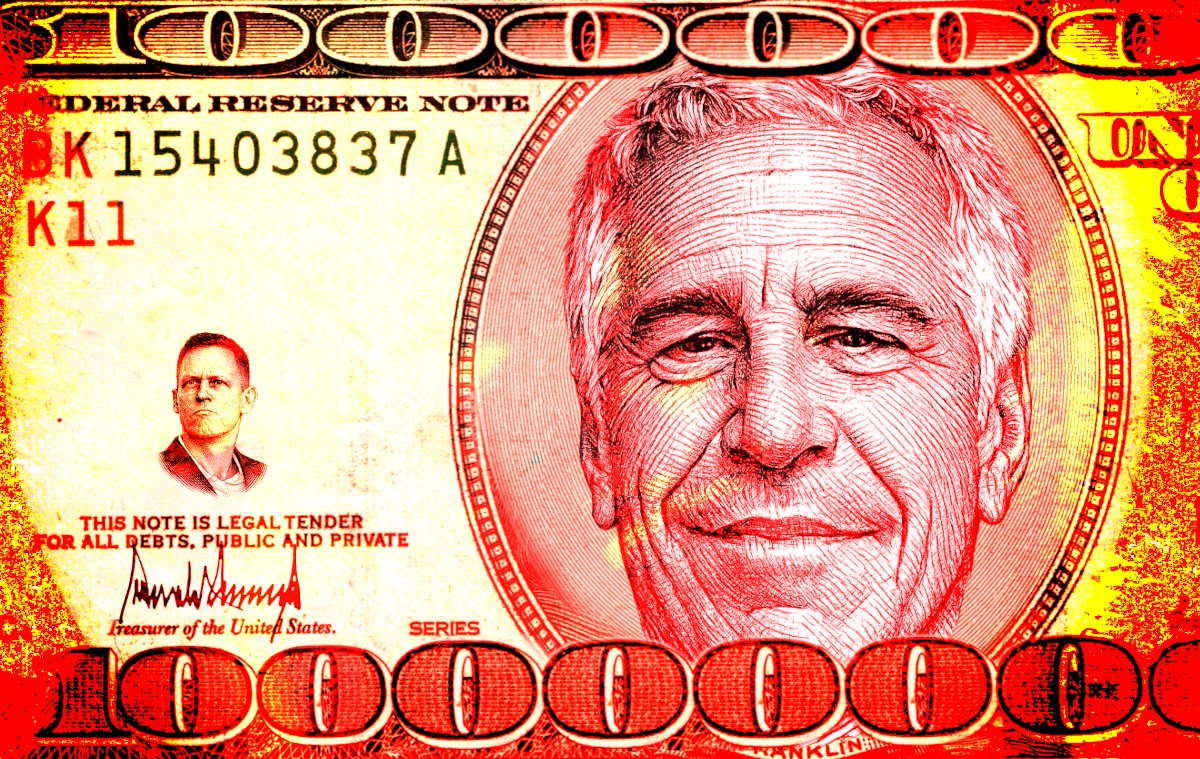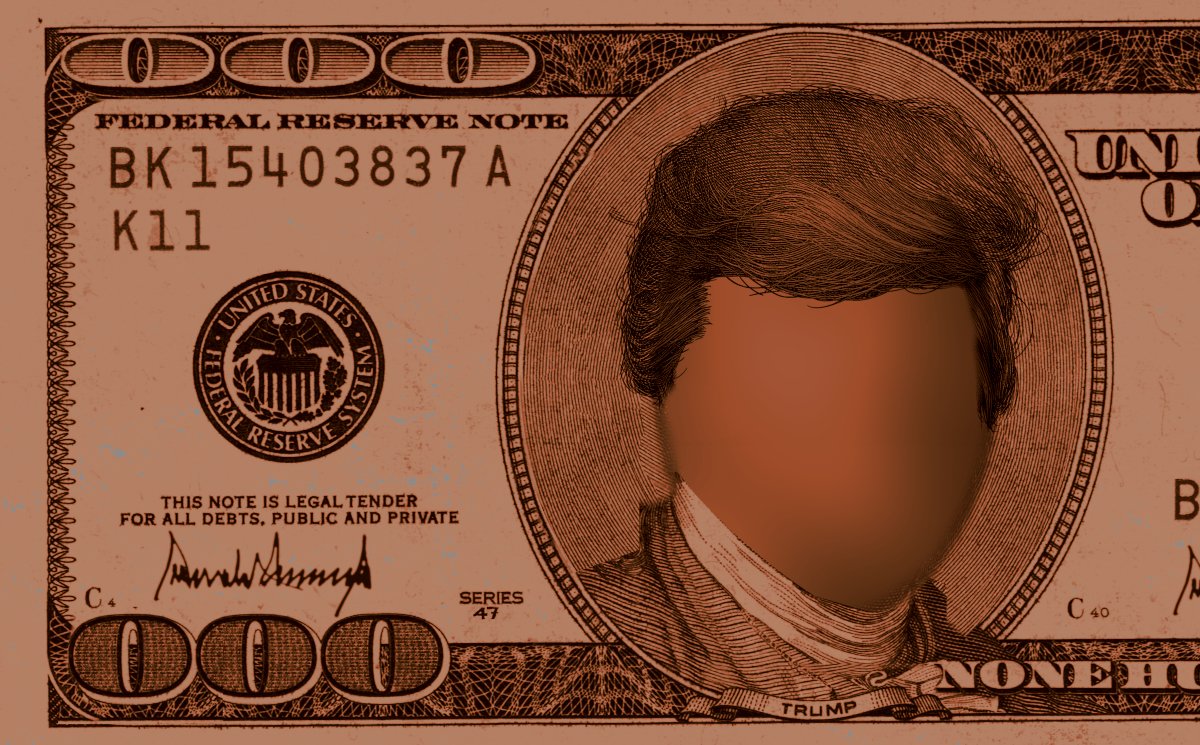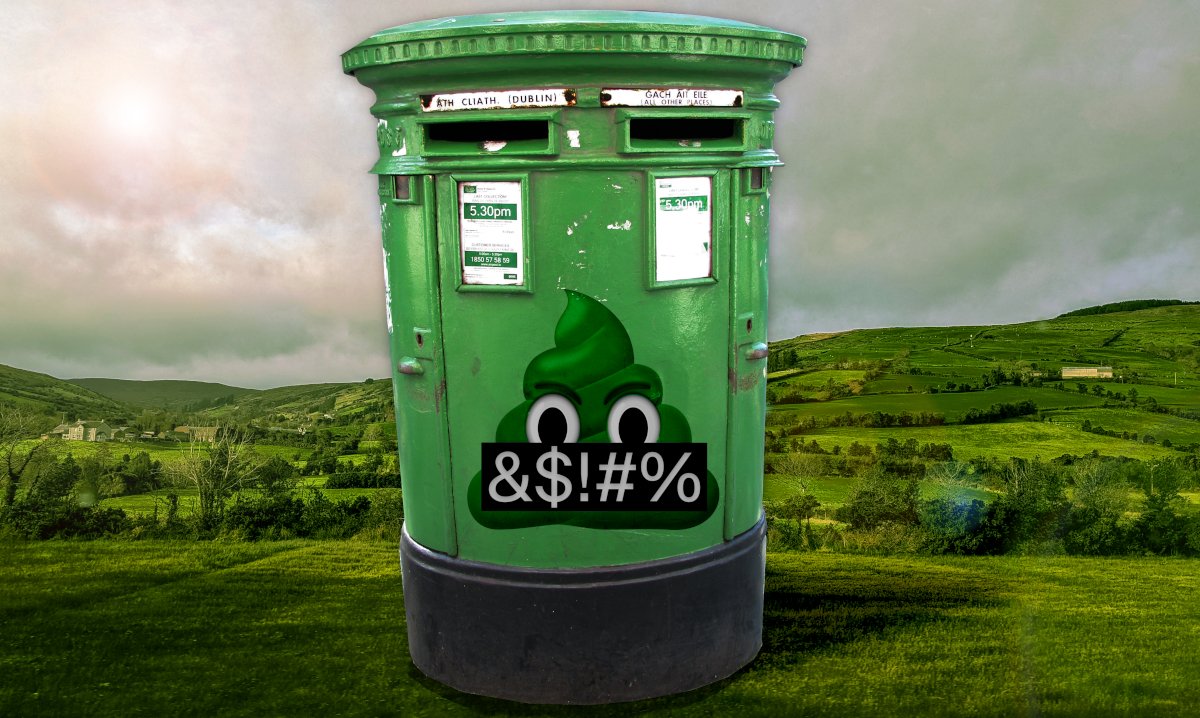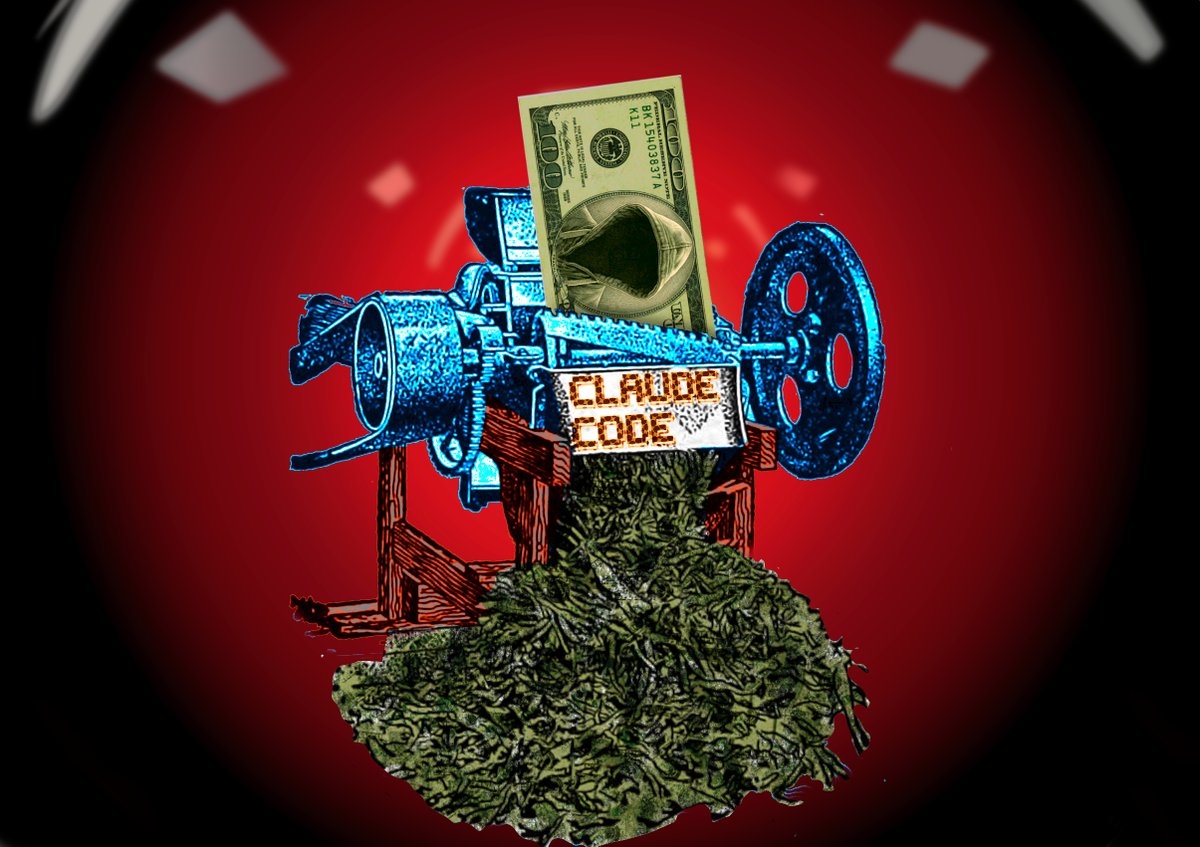The US election news has largely overshadowed a seismic moment in global finance: Ant, a fintech company that spun out of Alibaba/Alipay, was scheduled to have the world's largest IPO, topping even Aramco, the Saudi sovereign wealth fund.
Then Chinese regulators canceled it.
1/
Then Chinese regulators canceled it.
1/
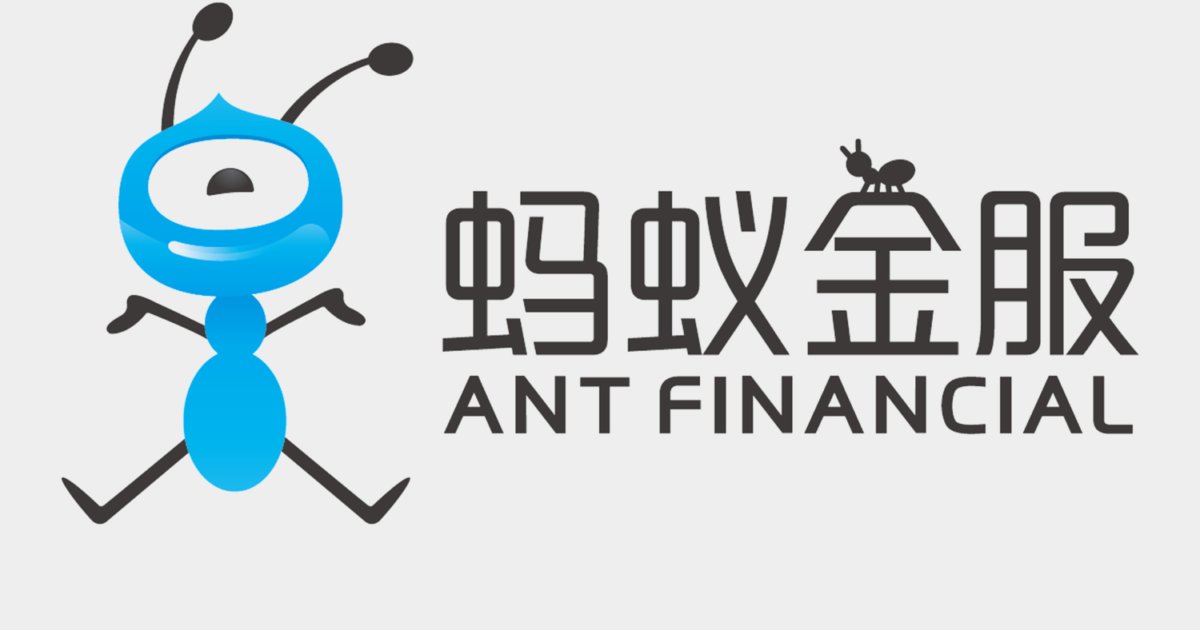
As @yvessmith writes in her excellent @nakedcapitalism breakdown, the consensus narrative on this is capricious Chinese regulators changed their minds and jerked the rug out from under Ali's billionaire owner Jack Ma.
The reality is a lot chewier.
nakedcapitalism.com/2020/11/china-…
2/
The reality is a lot chewier.
nakedcapitalism.com/2020/11/china-…
2/
To understand it, you need to understand the difference between the Chinese and American "money story." In the US, there is widespread, unquestioning faith in the fairytale that money predates the state and is separate from it.
3/
3/
In this story, people come together to trade but are plagued by disparate goods: if I want to pay for your chickens with a cow, how do you make change? They spontaneously decide that something (gold?) is money and price their cows and chicks in it.
4/
4/
Then, governments come along tax our gold away, and then to add insult to injury, governments abandon gold and insist that paper is as good as gold, print too much of it and crash the economy!
This probably sounds familiar to you, but it's just not true.
5/
This probably sounds familiar to you, but it's just not true.
5/
The actual historical reality, supported by history, archaeology and anthropology, is that governments created money by creating tax. The first "money" was the Babylonian ledgers that recorded how much of their crops farmers owed to the state and their creditors.
6/
6/
Money took a leap forward with imperial conquest: emperors solved the logistical problem of feeding and billeting their occupying soldiers by charging the occupied a tax that had to be paid for in coins stamped with the emperor's head.
7/
7/
They paid the soldiers in these coins, and demanded that their conquered populations somehow get the coins in order to pay their tax, with violent consequences if the tax wasn't paid. So the people sold food and other necessities to soldiers to get the coins.
8/
8/
Money, in other words, is how states provision themselves, and it derives its value from the fact that you have to pay your taxes in it. Governments spend money into existence by buying labor and goods from the public, and then tax it out of existence once a year.
9/
9/
The money the government spends, but does not tax, is the public's money - the money left over for us to transact. All the money in circulation is the sum total of all the money the government spent but didn't tax - that is, the government's deficit is the public's asset.
10/
10/
When governments run "balanced budgets" (or budget surpluses), they remove money from the economy, leaving the public with less to spend. That can be a good thing - a way to fight inflation, which is when too much money chases too few assets.
11/
11/
Low government spending slows growth by taking away the private sector's ability to spend. When the private sector is at full employment, when it is buying all the stuff that's for sale, you need to do something to keep inflation at bay.
12/
12/
During WWII, the USG competed with the private sector for stuff and labor. Uncle Sam spent lots of new money into existence, paying people to build munitions - but then convinced people to buy war bonds, burying that new money for years to come.
nakedcapitalism.com/2019/07/taxes-…
13/
nakedcapitalism.com/2019/07/taxes-…
13/
But when governments run so lean that there isn't enough money in the economy for the private sector to buy the stuff it needs, it seeks out other forms of money, like bank loans (which generate interest income for shareholders - one reason the market likes austerity).
14/
14/
In theory, bank lending is tightly regulated. Banks are the government's fiscal agents, creatures of the state, only able to trade because of a government charter. But when there isn't enough money in the system, unregulated banks spring into existence.
15/
15/
Another word for "unregulated bank" is #fintech (h/t @raaleh).
And now we're back to China and the money story. Chinese finance regulators have always treated money as a public utility, to be spent or withdrawn to accomplish public purposes.
16/
And now we're back to China and the money story. Chinese finance regulators have always treated money as a public utility, to be spent or withdrawn to accomplish public purposes.
16/
During the country's rapid industrialization, regulators loosened the flow of money to allow for rapid capacity-building, directing the country's productive capacity to building factories that would multiply that capacity.
17/
17/
But when they shut off the spigot and told factory owners that their future growth would come from making and selling things, the wealthy rebelled and sought out money from unlicensed banks or banks that were willing to break the rules.
18/
18/
This led to a string of subprime debt crises over the past five years, as regulators crushed these wildcat money-creators as fast as they popped up.
bloomberg.com/opinion/articl…
China's 1% fought back. They emigrated:
macrobusiness.com.au/2012/08/rich-c…
19/
bloomberg.com/opinion/articl…
China's 1% fought back. They emigrated:
macrobusiness.com.au/2012/08/rich-c…
19/
They used cryptocurrency (aka fintech) to evade capital controls, inflating the Bitcoin price-bubble and the Vancouver/Sydney/etc real-estate price bubble as they laundered their money and stashed it in safe-deposit boxes in the sky:
ft.com/content/bad16a…
20/
ft.com/content/bad16a…
20/
As China's shadow economy ballooned it also grew in criminality. There was the wave of Chinese debt-kidnappings, which became so widespread that hostage-taking was described as "China's small claims court."
foreignpolicy.com/2017/08/08/chi…
No wonder regulators fought back.
21/
foreignpolicy.com/2017/08/08/chi…
No wonder regulators fought back.
21/
China's regulators didn't win a decisive victory, but they retained enormous control over their money-supply, and that REALLY paid off when the pandemic hit and they suspended all debts, rents, and taxes and mothballed the entire productive economy.
pluralistic.net/2020/09/01/can…
22/
pluralistic.net/2020/09/01/can…
22/
Contrast with the US where the finance sector is an industry, not a public utility. Finance flexed its political muscle and diverted nearly the whole stimulus to itself, then crushed the productive economy by demanding debt service and rents.
nakedcapitalism.com/2020/09/michae…
23/
nakedcapitalism.com/2020/09/michae…
23/
The ability to use finance as a utility is one of China's crucial assets, and it defends that asset ferociously. And THAT'S why the Ant IPO got killed. Ant's major source of income is short-term, high-interest lending, what Chinese regulators call "pawnbrokering."
24/
24/
China's pawnbrokers are a $43B shadow banking sector, and the country's regulators have been cracking down on them for the past year.
bloomberg.com/news/articles/…
$43B is a drop in the bucket of China's shadow economy (valued at $9T!), but it has real metastatic potential.
25/
bloomberg.com/news/articles/…
$43B is a drop in the bucket of China's shadow economy (valued at $9T!), but it has real metastatic potential.
25/
Ant's innovation is to fintechize pawnbrokering industry, by tying it to apps (on the front end) and to a US-style debt-brokerage (on the back end).
IOW: Ant's business model is that desperate people use an app to request and quickly receive high-risk, high-interest loans.
26/
IOW: Ant's business model is that desperate people use an app to request and quickly receive high-risk, high-interest loans.
26/
Then Ant sells the loans to "investors" (AKA "securitization"). Converting debts into income streams for third parties is the true basis of the finance industry. It's the means by which socially useless intermediaries extract ever-mounting rents from the productive economy.
27/
27/
And as Smith writes in her breakdown, the fact that Chinese finance regulators weren't going to let Ant explode his mass-scale, app-based payday-lending pawnbrokerage is not a surprise. They've been telling Jack Ma this for MONTHS, publicly and privately.
28/
28/
Ma thought he could simply bull his way past the Chinese regulators - that because he runs Alibaba and its subsidiaries, that they would defer to him. But the whole point of a finance regulator is NOT to let the finance sector write its own rules.
29/
29/
That's because bankers will cheerfully set the whole economy on fire to turn a buck (see, e.g., America).
Ant was on track for the largest IPO in world history due to investors' appetite for converting Chinese money from a public utility to a private enrichment vehicle.
30/
Ant was on track for the largest IPO in world history due to investors' appetite for converting Chinese money from a public utility to a private enrichment vehicle.
30/
So yeah, you're goddamned right the Chinese regulator wasn't going to let him do it. Their whole JOB is to not let him do it.
If you read this far, you may be asking yourself why, if governments don't need taxes to fund programs, they bother to tax at all?
31/
If you read this far, you may be asking yourself why, if governments don't need taxes to fund programs, they bother to tax at all?
31/
There are two important reasons. The first is to fight inflation, by removing existing money from circulation so that when the government spends new money into existence to pay for the things it needs, that money isn't bidding against the existing supply.
32/
32/
But the other reason is to deprive the wealthy of the power that money brings, lest they use that power to pervert policy. Jack Ma's billions are what got him to the brink of a disastrous IPO for his unregulated bank.
33/
33/
And the US election demonstrates just how badly public policy fares when concentrated money is brought to bear on it for parochial purposes. Take #Prop22, the California ballot initiative to allow Uber and Lyft to misclassify their employees as independent contractors.
34/
34/
No on Prop 22 is a no-brainer. Vast numbers of gig workers are full-time employees, not contractors, and Lyft and Uber and other gig economy companies have pioneered labor misclassification as a tactic for paying literal starvation wages.
pluralistic.net/2020/10/14/fin…
35/
pluralistic.net/2020/10/14/fin…
35/
And yet, Prop 22 passed, thanks to the largest-ever spending on any ballot initiative in California history: $205 million ($628,854/day!), spent pn 19 PR firms (including Big Tobacco's cancer-denial specialists).
jacobinmag.com/2020/11/propos…
36/
jacobinmag.com/2020/11/propos…
36/
The spend included a bribe to the NAACP Chair's consultancy that made sub-minimum wage jobs with no benefits for people of color (the majority of gig workers) seem like a blow for racial justice.
All told, Uber/Lyft's campaign outspent 49 out of 53 CA House races COMBINED.
37/
All told, Uber/Lyft's campaign outspent 49 out of 53 CA House races COMBINED.
37/
And it was a bargain. Lyft and Uber have stolen $413m from California's employment insurance fund since 2014 - and that's just one cost they ducked through this victory. Far more important are the savings they'll realize on worker safety and job-related death claims.
38/
38/
The gig economy companies are the epitome of the financial economy destroying the productive economy. None of these companies turn a profit, after all - all they do is destroy actual, profitable businesses.
39/
39/
Currently the entire restaurant sector is being laid to waste by Postmates and Uber Eats (even as both lose vast sums):
pluralistic.net/2020/09/19/we-…
40/
pluralistic.net/2020/09/19/we-…
40/
And the workers who lost out with Prop 22 are being "chickenized" - having all the risk of operating a business shifted onto their side of the ledger:
pluralistic.net/2020/07/14/poe…
(No surprise, one of Prop 22's signature achievements was denying workers the right to unionize).
41/
pluralistic.net/2020/07/14/poe…
(No surprise, one of Prop 22's signature achievements was denying workers the right to unionize).
41/
The desperation of chickenized workers is downright dystopian:
pluralistic.net/2020/09/02/fre…
and chickenization (not automation) is the major cause of falling wages:
pluralistic.net/2020/06/17/on-…
42/
pluralistic.net/2020/09/02/fre…
and chickenization (not automation) is the major cause of falling wages:
pluralistic.net/2020/06/17/on-…
42/
Lyft, Uber, Postmates, and the whole gamut of gig economy companies are all haemorrhaging money. Uber alone lost $4.7B in the first half of 2020. That's how you can tell they aren't tech companies: tech companies profited during the pandemic.
43/
43/
Gig-economy companies aren't part of the productive economy - they're part of the finance economy. They rely on investors, not profits from delighted customers, to stay afloat. They make nothing. They destroy everything: workers' lives, productive businesses.
44/
44/
They will never be profitable. Ever.
Take Uber. The company only exists because the Saudi royals amassed so much money that they could bend reality. The "Saudi Vision 2030" plan calls for the creation of new sources of post-oil wealth.
45/
Take Uber. The company only exists because the Saudi royals amassed so much money that they could bend reality. The "Saudi Vision 2030" plan calls for the creation of new sources of post-oil wealth.
45/
To that end, the Saudis have poured money into the Softbank VC fund, which then supported global-scale, money-losing, predatory businesses in the hopes of securing a monopoly (or, failing that, unloading the company onto dazzled suckers).
46/
46/
When the company IPOed last year, it had already lost $10b. It loses $0.41 on every dollar you spend on your fare. And yet, the Saudis got away clean, off the backs of investors who assumed that a pile of shit this big must have a pony under it somewhere.
47/
47/
Some believed the company's lies about the imminence of self-driving cars. Uber is not going to make a self-driving car.
pluralistic.net/2020/09/30/dea…
48/
pluralistic.net/2020/09/30/dea…
48/
Some believed the company's lies about profitability via growth. It can't grow to profitability. By its own disclosures, profitability depends on every public transit system in the world shutting down and being replaced by Ubers. #Nagahappen.
48hills.org/2019/05/ubers-…
49/
48hills.org/2019/05/ubers-…
49/
The Saudi strategy - and its punishing, economy-destroying reality-distortions - are exemplary of what happens when government let too much money accumulate in unaccountable, private hands. Prop 22 will kill and starve workers, and the public will pick up the pieces.
50/
50/
The businesses that profit from these deaths and immiseration will fail anyway, but not before their major backers and top execs make hundreds of millions or billions.
Recall: the Ant IPO was set to smash the existing record: Saudi Aramco (AKA the money behind Uber).
51/
Recall: the Ant IPO was set to smash the existing record: Saudi Aramco (AKA the money behind Uber).
51/
Meanwhile, all the blood and treasure squandered on Prop 22 - the $205m spent on the Yes side, the $20 spent by unions on the No side - won't save Uber or other gig economy companies.
52/
52/
Not only are they bleeding money, but as @bigblackjacobin explains, "Uber is losing legal challenges in France, Britain, Canada, Italy," turning drivers into employees or allowing "lawsuits reclassifying them as such."
vice.com/en/article/3an…
53/
vice.com/en/article/3an…
53/
And other US states - NY, MA, NJ - are working to end the misclassification of Uber drivers and other gig workers.
Permitting Uber and other gig economy companies to flout the law did not make the economy better. All it did was transfer more money to the wealthy.
54/
Permitting Uber and other gig economy companies to flout the law did not make the economy better. All it did was transfer more money to the wealthy.
54/
And the money they wealthy amass is converted to political power, usurping money's role as a public utility and converting it to a means to seek private gains at public expense.
eof/
eof/
ETA: here's a surveillance-free, unrolled version of this thread, licensed CC-BY:
pluralistic.net/2020/11/05/got…
pluralistic.net/2020/11/05/got…
• • •
Missing some Tweet in this thread? You can try to
force a refresh


